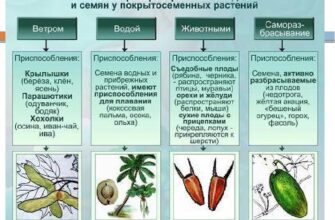- План-конспект урока по английскому языку. «Конфликты и способы их разрешения»
- Дистанционное обучение как современный формат преподавания
- Специфика преподавания английского языка с учетом требований ФГОС
- Актуальные вопросы преподавания английского языка в условиях реализации ФГОС
- Оставьте свой комментарий
- Безлимитный доступ к занятиям с онлайн-репетиторами
- Подарочные сертификаты
- Презентация по английскому языку на тему «Способы решения конфликтов» (9 класс)
План-конспект урока по английскому языку. «Конфликты и способы их разрешения»
План-конспект урока по английскому языку
Составитель: Панькова Э.Р.
Тема урока: « Конфликты и способы их разрешения »
Дата: 26.09.2018 г.
Цели:
Освоение во всех видах речевой деятельности новых лексических единиц по теме «Конфликты и способы их разрешения»;
Воспитание нравственных ценностей и ориентиров;
Развитие коммуникативных универсальных учебных действий (УУД) во всех видах речевой деятельности, в том числе через освоение правил межличностного общения и поведения.
Задачи урока:
образовательные : сформировать практические умения в говорении, чтении и письме;
воспитательные: воспитывать интерес учащихся к способам решения конфликтов;
изучить причины возникновения конфликтов;
развивающие: развивать логическое мышление, скорость мышления, коммуникативные умения и применение их на практике.
предметные : закрепить и обобщить знания учащихся по теме «Конфликты»;
метапредметные : развивать навыки диалогической и монологической речи учащихся; навыки анализа и обобщения знаний; умение сотрудничать и работать в команде; способствовать развитию умения анализировать и обобщать знания;
личностные : воспитывать личностные качества: ответственность, самостоятельность;
здоровьесберегающая : предупреждать переутомление у учащихся путем смены деятельности; способствовать укреплению духовного и эмоционального здоровья учащихся; повышение устойчивости к стрессогенным факторам социальной среды;
Методы : словесные, практические, наглядные.
— учебник Spotlight -8, В.Эванс, Д.Дули и др.,
— дидактический раздаточный материал по теме,
Педагогические технологии – обучение в сотрудничестве, личностно-ориентированный подход в условиях классно-урочной системы.
Формы работы – фронтальная, индивидуальная и групповая
1.Организационный момент. Прием: Речевая разминка
Hello, my friends! … How are you? … Take your seats, please. What’s the news for today? … And my news is that we have guests today! I wish you good luck! Well, let’s start!
2. Мотивация . Приемы: прогнозирование, просмотр видеоролика, введение темы урока.
Look at the screen and think of the topic of our lesson, please!
So what is this video about? … You are all quite right and as you understand, the topic of our lesson is CONFLICTS and means for resolving conflicts.
Тема урока . Resolving conflicts. How to resolve conflicts.
3. Целеполагание . Приемы : домысливание , подводящий диалог .
1) What are we going to do today? What is the purpose of our lesson? What are we going to talk about? Why do we need to discuss the topic?
Today we are going to talk about different types of conflicts, how to prevent and avoid them.
By the end of the lesson, you will be able to ( Прил .1)
4. Актуализация. Прием: Повторение лексики
5. Изучение нового материала. Приемы: кластер, работа с учебником ( listen and read ), беседа. (Выполнение упр. 3,5, с. 23)
Let ’ s check up ! Group 1 deals with the “CONFLICTS between parents and children”. … “CONFLICTS between two persons” is for group 2. … Our group 3 is going to find words about “CONFLICTS between a person and society” … You can see the words you need below, but be careful! At first find out the right translation! Let’s begin. Thank you very much!
6. Первичный контроль . Прием : домысливание
2) Now, my friends tell me please your ideas what the word “conflict” means.
Well, we can conclude that conflict – is disagreement or misunderstanding between two persons or group of people. Do you agree? …
Dynamic pause (using ex. 1, p.22)
7. Закрепление изученного материала. Прием: составление предложений, работа в тетрадях (выполнение упр. 4, с. 22), работа в группах (диаграмма, прил. 3)
Задача: развитие умения выражать свои чувства в ситуации разрешения конфликта.
Учащиеся выполняют задание в парах.
What can we do to prevent the conflict? There are a lot of different ways. Open your books to page 22 and look at exercise 4. You can see some sentences. All of them start with the pronoun “You”. However, when people hear the pronoun “YOU” they often become nervous and even aggressive. And it’s better to speak about your own feelings and use the pronoun “I” instead of “YOU”. For example:
You never want to hang out with me any more!”
I feel bad because we don’t hang out any more.
2 I am disappointed that you are late again. I don’t feel I can rely on you.
3 I don’t feel I can believe what you say anymore as there have been so many lies. or I feel upset because we don’t trust each other.
4 I wish you would listen to me for once! or I feel sad when my words are not interesting for people.
Pie chart ( прил .3) Please circle the expressions you think are important.
Can you give some advice how to behave in conflict situations? So my advice for you is …
BE TOLERANT AND YOU WILL PREVENT CONFLICTS!
6) The word “tolerance” comes from Latin. It means “patience”. Tolerance is being patient, understanding and accepting of anything different.
8. Дифференцированное домашнее задание
2) Make a list Do’s and Don’ts when you have any type of conflicts
9. Итоги (рефлексия, оценивание) Прием: Три М.
Учащимся предлагается назвать три момента, которые у них получились хорошо в процессе урока, и предложить одно действие, которое улучшит их работу на следующем уроке.
By the end of the lesson you will be able to:
Explain what kinds of hurtful behavior you know;
Develop strategies for dealing with hurtful behavior (conflicts);
Create an environment in which we (students) treat each other respectfully.
CONFLICTS between parents and children”
“ CONFLICTS between two persons”
“ CONFLICTS between a person and society”
people scream, shout, swear
discuss the problem
forgive and move on
forgive and move on
resolve a conflict
oppose each other
Курс повышения квалификации
Дистанционное обучение как современный формат преподавания
- Сейчас обучается 813 человек из 76 регионов
Курс повышения квалификации
Специфика преподавания английского языка с учетом требований ФГОС
- Сейчас обучается 148 человек из 48 регионов
Курс повышения квалификации
Актуальные вопросы преподавания английского языка в условиях реализации ФГОС
- Курс добавлен 27.09.2021
- Сейчас обучается 90 человек из 47 регионов
Ищем педагогов в команду «Инфоурок»
В данном материале представлен план-конспект урока по английскому языку.
Тема урока: «Конфликты и способы их разрешения».
Цели и задачи оформлены в соответствии с требованиями ФГОС.
Четко выделены все этапы урока, есть раздаточный материал и наглядность для оформления доски.
После указания каждого этапа работы прописаны использованные приемы.
Номер материала: ДБ-119367
Международная дистанционная олимпиада Осень 2021
Не нашли то что искали?
Вам будут интересны эти курсы:
Оставьте свой комментарий
Авторизуйтесь, чтобы задавать вопросы.
Безлимитный доступ к занятиям с онлайн-репетиторами
Выгоднее, чем оплачивать каждое занятие отдельно
Рособрнадзор откажется от ОС Windows при проведении ЕГЭ до конца 2024 года
Время чтения: 1 минута
Спортивные и творческие кружки должны появиться в каждой школе до 2024 года
Время чтения: 1 минута
Минпросвещения будет стремиться к унификации школьных учебников в России
Время чтения: 1 минута
Минпросвещения разрабатывает образовательный минимум для подготовки педагогов
Время чтения: 2 минуты
В Тюменской области продлили на неделю дистанционный режим для школьников
Время чтения: 1 минута
Вопрос о QR-кодах для сотрудников школ пока не обсуждается
Время чтения: 2 минуты
Подарочные сертификаты
Ответственность за разрешение любых спорных моментов, касающихся самих материалов и их содержания, берут на себя пользователи, разместившие материал на сайте. Однако администрация сайта готова оказать всяческую поддержку в решении любых вопросов, связанных с работой и содержанием сайта. Если Вы заметили, что на данном сайте незаконно используются материалы, сообщите об этом администрации сайта через форму обратной связи.
Все материалы, размещенные на сайте, созданы авторами сайта либо размещены пользователями сайта и представлены на сайте исключительно для ознакомления. Авторские права на материалы принадлежат их законным авторам. Частичное или полное копирование материалов сайта без письменного разрешения администрации сайта запрещено! Мнение администрации может не совпадать с точкой зрения авторов.
Источник
Презентация по английскому языку на тему «Способы решения конфликтов» (9 класс)
Описание презентации по отдельным слайдам:
What is conflict?
Conflict Conflict (from the Latin. Conflictus) — clash or struggle, hostility. Conflict is actual or perceived opposition of needs, values and interests
What is conflict? What is a conflict? –It’s a harmful thing. That makes us rude and cruel. It breaks relationship and peace And starts the fights and quarrels. What should we do? Who has to help us live without conflicts? Don’t do people harm! And learn TO LIVE IN FRIENDSHIP!
And you’ll prevent all conflicts in the world! We should learn to live in peace with classmates, parents, friends Be tolerant!
The types of conflicts BETWEEN
Упр.2 To wear Reunion To insist Wheelchair Look like Square- lovely Одевать Встреча Настаивать Инвал. кресло Быть похожим Квадратный замечательно
People shout at each other when they … . People cry when … . I trust people who … . A person can be relied on if … . I respect people who … .
Agree or disagree 1. You and your brother get on well. 2. You never shout at your younger sister. 3. Your relatives can resolve conflicts peacefully. 4. You have fights with your friends every day. 5. You shouldn’t listen to other people. 6. You are always polite. 7. You don’t want to learn about conflicts resolution. 8. You often ignore your friend’s opinion.
People are different: they have different ideas… Why do conflicts happen?
Character adjectives sociable – общительный nervous – нервный patient — терпеливый irritable — раздражительный shy – скромный jealous – ревнивый reliable – надежный selfish – эгоистичный optimistic – оптимистичный pessimistic – пессимистичный angry — злой
“Plant kindness and love will grow” Thomas Jefferson
family military national state serious neighbours friends political conflicts parents
Conflicts may lead to fights, bad relations and violence.
Conflicts happen because people are different: they want different things, they have different ideas and their values are different. Very often people have conflicts because they do not listen to each other well. They think about what they want to say and don’t really hear what the other person is saying. Why do the conflicts happen?
Rephrase the sentences using the infinitive. Example: My cousin has a very easy poem that he must learn by heart. — My cousin has a very easy poem to learn by heart. His sister has a true friend whom she can tell her secrets. You’d better find another church where you can hold this ceremony. We had advice that we wanted to give you. I have decided that I should learn the French language.
We should learn to observe the laws of coexistence
Good morning, … ! Hi, mum (dad)! I’ve got exciting news. We are going to have … . What? Again all my relatives will … Oh, dear, it happens only once a year, you should be … . Besides, … . Yes, I know, they want … You shouldn’t be so … Oh really? I’ve always dreamed about … . But this is a special party. You’d better look more conservative … . Don’t you mean that … ? Exactly. But it looks silly! It looks nice. Can’t you forget … Well, OK! That’s good! And try to be … and behave … at the party.
If the sentence is true, repeat it. If it is false, correct it It is impossible to prevent all conflicts. Very often people have conflicts because they listen to each other well. If people respect each other, they resolve conflicts in a peaceful way. Many people want to learn about conflict resolution. If conflicts happen between states, they can lead to a war. It is not important to know why conflicts happen in a family. It is not necessary to respect the right of other people to be different from you.
Transform the answers to these questions into Reported Speech:
Direct Speech Indirect Speech this, these now here today tomorrow the day after tomorrow yesterday the day before yesterday ago that, those then, at that moment there that day the next day two days later in two days the day before two days before before
Translate the words предотвращать конфликт несправедливый спорить поддерживать уважать ценности мирное решение человеческие права быть толерантным непонимание плохие отношения частная жизнь дружить
If you don’t think about the future you will not have it. John Galsworthy :
1. Try not to waste energy. 2. Before you throw anything away, stop and think. Might someone else have a use for it? 3. Take as much rubbish as you can to local recycling centres. 4. Don’t waste paper. 5. If you have a choice avoid buying packaged goods. 6. Don’t drop litter. 7. Help to clean up your local environment. 8. Try to reduce noise pollution. 9. Put out food for birds and wild animals in winter. Save the Earth.
Television is an important means of communication. A bright moon in the sky at night means good weather the next day. What means of transport do you prefer? Do you know what this word means? English is a means of international business communication. He is rather unreliable — his promise means nothing. What is the meaning of the word “means”?
Переведите эти предложения на английский язык. Используйте слово «right» в каждом из них. 1. Мой ответ был абсолютно верным. 2. Ты уверен, что это правильный номер телефона? 3. Поверни направо на углу улицы, и ты увидишь большое серое здание. 4. Каждый имеет право выразить свое мнение.
prevent prevention preventing lead leadership relate relation solve solution resolution respect respectfully disagree disagreement unite union differ different peace peacefully violent violence violently
prevent prevention preventing lead leader leadership relate relation relationship solve solution resolution respect respectful respectfully agree disagree disagreement unite union reunion differ different differently peace peaceful peacefully violent violence violently
Make up 7 words from word pieces below ion agree lead ship peace solution prevent ful relation differ ent er ment re
Choose the right answer We can choose friends, but we can’t choose our(1)_____. Many children have such good relationship(2)____their parents that they see them as friends. When you’re a teenager, you’ll have(3)____with your parents. There will be times when you don’t(4)___ on very well with them. There will be times when you want to be(5)___ and solve your problems by yourself. You’ll also(6)___ your parents down sometimes. As you grow(7)___ , you’ll become closer to your parents. 1 a)couples b) guests c) strangers d) relations 2 a)by b) for c)with d)from 3 a)moods b) arguments c)lies d)dishonesty 4 a)get b)take c)put d)set 5 a)sad b)merry c)grateful d)independent 6 a)let b)make c)take d)fall 7 a)on b)over c)out d)up
Fill in the gaps with the appropriate verb: I feel sick when somebody (1) ____beside me. I don’t approve of the fact that cigarettes (2)____ in public places. I think it’s not fair to make other people (3)________ headaches because smokers don’t want to give up their habits. My father is a heavy smoker. He (4)________ for ten years and he can’t (5)____ it. My mum (6)____ him for this unhealthy habit, but in vain. So we have to (7) ___ it. Should (8)____ be allowed or banned? 1 a) smokes b)is smoking c) smoked d) are smoking 2 a) are sold b) are supported c) are ignored d) are recommended 3 a) suffer from b)suffer on c) suffer with d)suffer about 4 a) smoke b) smoked c)was smoking d) hasbeen smoking 5 a) get along b) putoff c) do without d) get over 6 a)criticises b) asks c) Argues d) hates 7 a)get over b) get off c) put up with d) get along with 8 a) I b) it c) he d) we
… Do you often have arguments with your parents? I do. My mother thinks that I spend too much time hanging around with my friends. Do you often meet your friends? What do you usually do together? And what do you do when you disagree with your parents about how you spend your free time? Write back soon. Love, Ann Write back to Ann (100-140 words). In your letter ask her 3 questions about her relations with her younger sister.
Some people think it is important to be honest, while others say that there is hardly a person in the world who has never told a lie. Lying is quite natural and people often do it in case of emergency, intentionally or even without any reason. Is it all right to tell a lie or must we be honest all the time? I believe that a person who always lies, cheats and deceives other people will never have any real friends. At the same time it is very difficult to communicate with people who are very direct and say exactly what they think. Sometimes telling the truth may hurt other people’s feelings. For example, your friend has had her hair done and asks what you think of her hair-do. To your mind, she looks terrible. But I think that in such a situation it would be better to tell a white lie because it does not harm anyone. One may also tell a lie to help another person or even to save somebody’s life.
But unfortunately, most people lie to save their face, to derive some benefit or to avoid a punishment. Sometimes their dishonesty can be criminal. For instance, some people tell a lie after promising to tell the truth in a court of law. But lying often makes things worse, especially after it has been discovered. Discovery of a lie may spoil one’s reputation or lead to social or legal sanctions. Besides, you can’t lie all the time. To conclude, if you want to be trusted and respected, you should be open and sincere. But in some cases truth may be blunt and rude, so it is better to tell a white lie in order to remain tactful and polite.
Make up one sentence using conditional I 1. I’ll have a quarrel with my best friend. I’ll ask my mother for advice. 2. I’ll have no time to look after my sister. My cousin will help me. 3. I’ll be independent on my parents. I’ll buy a new computer. 4. I’ll be late for classes. My teacher will be angry.
Finish the sentences: 1. A conflict is. . 2. I tell lies to my friends if. . 3. I am sure people can prevent. . 4. Conflicts often happen. . 5. Conflicts can lead to. . 6. I respect people. . 7. It makes me feel down when. . 8. Political parties should resolve conflicts by. . 9. It is possible that people will prevent. 10. We must respect.
Parents/ teachers make (expect) their children (pupils) …
Ann: Hello Mr. Hanks. I wrote you a letter last month about my sons’ conflict and you advised me to offer them a 5 step method. It helped for a while, but they are still fighting. I want them to live in peace. Mr. Hanks: Of course, all parents want their children to live in peace but you shouldn’t decide what the children should do. Ann: I know, I maybe make too much fuss about everything. Mr. Hanks: You should discuss with them again what the problem is. Ann: They find more and more problems every day! Mr. Hanks: Then help the children to prevent problem in such a way: suggest them to be responsible for different things and the next day they should change their roles. Ann: Oh. that is a great idea, thank you. Mr. Hanks. Mr. Hanks: Please let me know about the result. Ann: Sure. I will!
Fill the table “Conflict Resolution” Questions Answers step 1 What is the problem? The daughter refuses to do housework step 2 How can we solve the problem? 1. 2. step 3 What will happen? 1. 2. step 4 What is the best idea? step 5 How can we put the idea into action?
All is well that ends well! Your homework: to write the conflict resolution; to make a symbol of peace (additional homework)
Rules of behaviour: -Try to control what you do and say. -Observe the law of co-existence. -Respect other people’s rights. -You should follow the rules of behaviour at home, at school, in public places. -You should ask for psychological help. -Ask grown ups for help and follow their advice. -You shouldn’t quarrel with other people. -We shouldn’t shout at each other. Listen to the other person. -Tell the other person what’s bothering you — but do it nicely. — They mustn’t be aggressive and bully other people. — They mustn’t use dirty language.
ex80 Attentively-внимательно Confident-уверенный в себе Contrary-противопол. To criticise To hurt-ранить To relax Sense of humour To shout-кричать To argue-спорить To bully-запугивать Similar-похожий Inattentively Shy To support-поддерживать To agree-соглашаться To whisper-шептать To be nervous To help To comfort-успокаивать Lack of sense of humour
How to resolve the conflict always never Criticise differences Trouble people Quarrel with s/b Cheer up people Keep a sense of humour Observe other people’s rights Ask for advice Ignore someone’s opinion Talk to people Punish s/b unfairly Make fun of people Bully people Think about conflict Tell people what makes you unhappy Provide a solution Hurt people Shout at people Speak calmly Listen attentively to other people Avoid criticising differencess Ex.89, p.129
The emblem of the UN The emblem consists of a map of the world on polar projection surrounded by two olive branches. These two symbols speak for themselves. The olive branch can bе traced back to ancient Greece as a symbol of peace. The world map is a symbol of the area with which this organization is concerned in achieving its main purpose: peace.
The international organisation formed in 1945 after the end of the World War II to maintain world peace and encourage international co-operation. The main organ is the General Assembly. In 1948, the UN’s General Assembly adopted a Universal Declaration of Human Rights.
Answer the questions When was the organisation the United Nations formed? What does its emblem mean? What is the other name for this organisation? Why was it founded? Have you read the Declaration of Human Rights? Do you think it’s important for you to know about this document? Why?
Listen to the song of M.Jackson. While listening brainstorm your ideas on the theme of HUMAN RIGHTS. The words of this song are here What I know about human rights… Don’t matter if you’re black or white.
I took my baby on a Saturday Bang Boy is that girl with you Yes we’re one and the same Now I believe in miracles and a miracle Has happened tonight But if your’re thinkin’ about my baby It don’t matter if you’re black or white They print my message in the Saturday Sun I had to tell them I ain’t second to none And I told about equality and it’s true Either you’re wrong or you’re right But if you’re thinkin’ about my baby It don’t matter if you’re black or white I am tired of this devil I am tired of this stuff I am tired of this business sew when The going gets rough I ain’t scared of your brother I ain’t scared of no sheets I ain’t scared of nobody Girl when the goin’ gets mean Protection for gangs dubs and nations Causing grief in human relations It’s a turf war on a global scale I’d rather hear both sides of the tale See it’s not about races Just places faces Where your blood comes from Is where your space is I’ve seen the bright get duller I’m not going to spend my life being a color Don’t tell me you agree with me When I saw you kicking dirt in my eye But if you’re thinkin’ about my baby It don’t matter if you’re black or white You’re thinkin’ of being my baby It don’t matter if you’re black or white You’re thinkin’ of being my brother It don’t matter if you’re black or white It’s black it’s white It’s tough for them to get by It’s black it’s white whoo It’s black it’s white It’s tough for them to get by It’s black it’s white whoo Black or White
Источник















